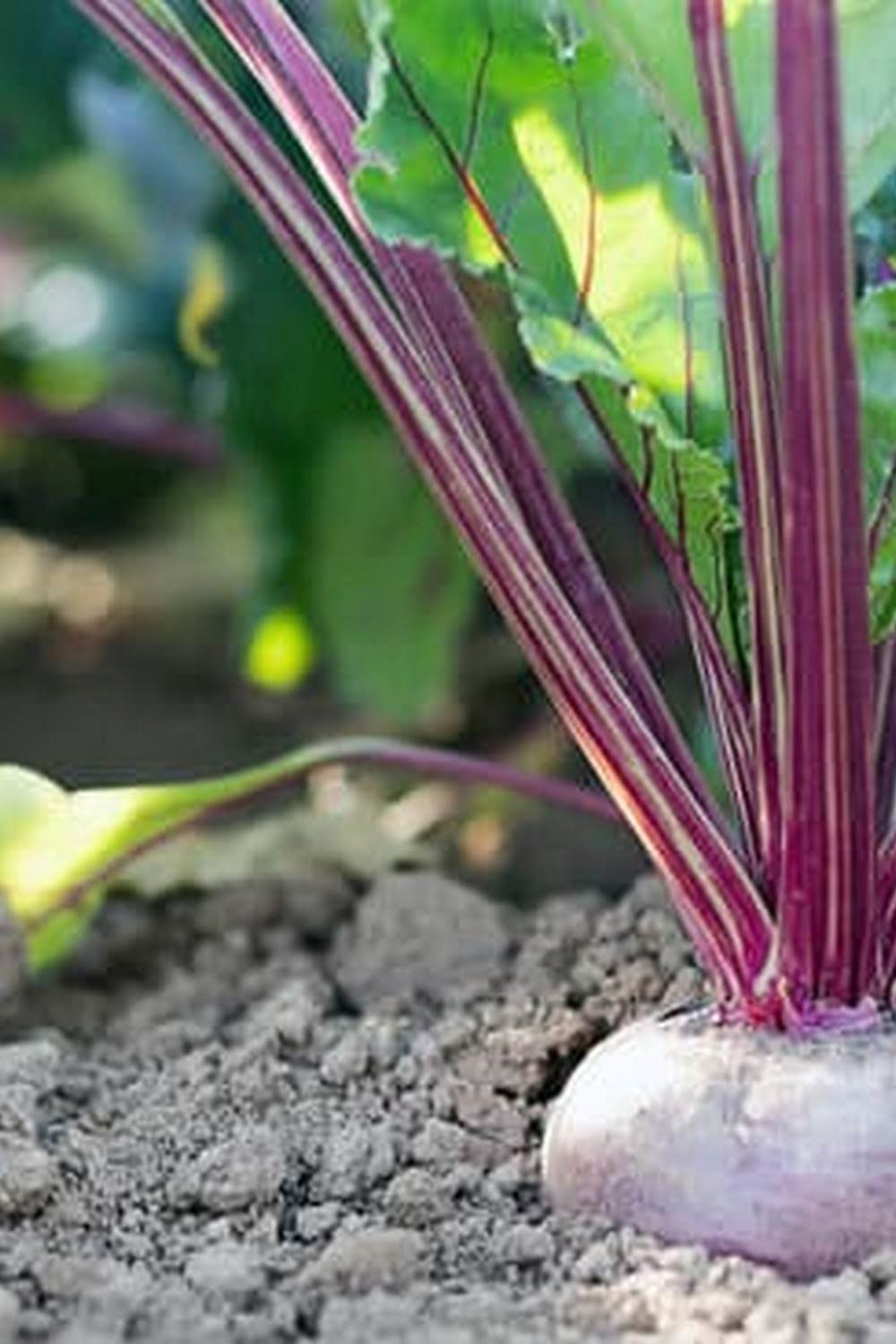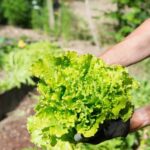Are you wondering what type of mulch is best for vegetable gardens? Mulching is a crucial practice in gardening that offers numerous benefits to your plants and soil. From retaining moisture to suppressing weeds and improving soil health, the right mulch can make a significant difference in the success of your vegetable garden.
Mulch serves as a protective layer over the soil, helping to regulate temperature, reduce erosion, and enhance overall plant growth. It acts as a barrier between the soil and outside elements, creating a more stable environment for your vegetables to thrive. With various types of mulch available, choosing the best one for your garden can be a daunting task.
In this article, we will delve into the importance of mulch in vegetable gardens, discuss the advantages of using mulch, explore factors to consider when selecting mulch, examine organic and inorganic options, provide tips on applying and maintaining mulch correctly, and offer guidance on choosing the best mulch for your specific vegetable garden needs. Get ready to maximize the potential of your vegetable garden with the right mulch.
Benefits of Using Mulch in Vegetable Gardens
Using mulch in vegetable gardens offers a wide array of benefits that can significantly improve the health and productivity of your plants. Here are some key advantages of incorporating mulch into your gardening routine:
- Suppresses weeds: Mulch acts as a natural barrier, preventing weed seeds from germinating and competing with your vegetable plants for nutrients and sunlight.
- Regulates soil temperature: By insulating the soil, mulch helps to maintain a consistent temperature, which is crucial for optimal root growth and overall plant health.
- Conserves moisture: Mulch helps to reduce water evaporation from the soil, allowing your vegetables to retain moisture for longer periods and reducing the need for frequent watering.
Additionally, using mulch in vegetable gardens can improve soil structure over time by slowly breaking down and adding organic matter. This enriched soil provides a healthy environment for beneficial microorganisms and earthworms, which contribute to better nutrient uptake by your plants.
When considering what type of mulch is best for vegetable gardens, it is essential to take into account specific factors that will influence your choice. Consider the following elements when selecting the right mulch for your garden:
- Climate: Choose a mulch that can withstand fluctuations in temperature and weather conditions typical of your region.
- Plant needs: Different vegetables may have varying preferences for moisture levels, so select a mulch that can help maintain the ideal soil moisture for your specific crops.
- Mulching goals: Whether you are primarily focused on weed suppression, water conservation, or improving soil fertility, there are different types of mulches available to address each objective.
By carefully evaluating these factors and understanding how they relate to your vegetable garden’s unique requirements, you can make an informed decision on what type of mulch will be most beneficial for promoting healthy growth and maximizing yield.
Factors to Consider When Choosing Mulch for Vegetable Gardens
Type of Vegetables Growing
When deciding on the best mulch for your vegetable garden, it is crucial to consider the types of vegetables you are growing. Different plants have varying needs when it comes to moisture retention, temperature regulation, and soil health. For example, tomatoes thrive in warm soil conditions, so a dark-colored mulch like black plastic or rubber might be beneficial. On the other hand, lettuce prefers cooler soil temperatures, making straw or shredded leaves a better choice.
Climate and Weather Conditions
The climate and weather patterns in your region play a significant role in determining the most suitable mulch for your vegetable garden. In areas with high rainfall or humidity, organic mulches like straw, wood chips, or compost can help regulate moisture levels and prevent waterlogging. In contrast, in arid regions, using materials like gravel or stones can aid in conserving moisture and reducing evaporation.
Soil Composition and pH Levels
Understanding the soil composition and pH levels of your vegetable garden is essential when selecting mulch. Some organic mulches like pine needles or coffee grounds can alter the soil acidity over time, which may benefit acid-loving plants such as potatoes or blueberries. Additionally, certain types of mulch can break down at different rates, contributing to soil fertility and structure. Consider conducting a soil test to determine any deficiencies or imbalances that need to be addressed through mulching.
By carefully evaluating these factors when choosing mulch for your vegetable garden, you can maximize plant growth and yield while promoting overall soil health and sustainability.Lorem ipsum dolor sit amet consectetur adipiscing elit sed do eiusmod tempor incididunt ut labore et dolore magna aliqua.minim veniam quis nostrud ullamco laboris nisi voluptate ipsum dolore.
Organic Mulch Options for Vegetable Gardens
Organic mulch is a popular choice for vegetable gardens due to its many benefits. One of the main advantages of using organic mulch is that it breaks down over time, adding valuable nutrients to the soil as it decomposes.
This can help improve the overall health and fertility of your vegetable garden, leading to better yields and healthier plants. Additionally, organic mulch helps retain moisture in the soil, reducing the need for frequent watering and helping to create a more stable growing environment for your vegetables.
When considering what type of mulch is best for vegetable gardens, there are several organic options to choose from. One common choice is compost, which is made from decaying organic matter such as food scraps and yard waste. Compost not only adds nutrients to the soil but also helps improve soil structure and microbial activity.
Another popular organic mulch option is straw, which can help suppress weeds, retain moisture, and protect delicate vegetables from pests and diseases. Other organic mulch options include grass clippings, leaves, wood chips, and shredded bark.
To determine the best organic mulch for your specific vegetable garden needs, consider factors such as availability, cost, nutrient content, and aesthetic appeal. It’s also important to consider how quickly the mulch will break down and whether it will need to be replenished frequently. By choosing the right type of organic mulch for your vegetable garden, you can help ensure healthy growth and maximize your garden’s potential yield.
Inorganic Mulch Options for Vegetable Gardens
Inorganic mulch options provide an alternative to organic mulches for vegetable gardens, offering different benefits and considerations. Some gardeners prefer inorganic mulches for their longevity and lack of decomposition, which can make them a low-maintenance choice. Common types of inorganic mulches include plastic mulch, landscape fabric, and stones or gravel.
Plastic mulch is a popular choice among vegetable gardeners as it helps increase soil temperature, retain moisture, and control weeds. It is often used in conjunction with a drip irrigation system to ensure plants receive adequate water. Landscape fabric is another option that suppresses weeds effectively while allowing water to penetrate through to the soil. Stones or gravel can provide a decorative touch to the garden while also assisting with moisture retention.
When choosing inorganic mulch for your vegetable garden, consider the specific needs of your plants and the climate in your region. Plastic mulch may be ideal for heat-loving crops like tomatoes, while landscape fabric could be more suitable for cooler climates where moisture retention is crucial. Additionally, take into account the aesthetics of the mulch material and how it will complement the overall look of your garden space.
| Inorganic Mulch Options | Benefits |
|---|---|
| Plastic Mulch | Increases soil temperature, retains moisture, controls weeds |
| Landscape Fabric | Suppresses weeds effectively, allows water penetration |
| Stones or Gravel | Decorative touch to the garden, assists with moisture retention |
How to Apply Mulch Correctly in Vegetable Gardens
Mulch plays a crucial role in maintaining the health and productivity of vegetable gardens. Once you have chosen the right type of mulch for your garden, it is essential to apply it correctly to ensure its effectiveness. Start by preparing the soil in your vegetable garden by removing any weeds and debris. This will prevent these unwanted plants from growing through the mulch and competing with your vegetables for nutrients.
Next, apply a layer of mulch around your vegetable plants, making sure to leave a small gap around the base of each plant to prevent rotting. The thickness of the mulch layer will depend on the type of mulch you are using; generally, a layer around 2-3 inches thick is sufficient. Avoid piling up mulch against the stems of your plants, as this can promote moisture-related diseases and attract pests.
It is also important to periodically check and replenish the mulch in your vegetable garden. Over time, organic mulches will decompose and compact, reducing their effectiveness. Check the thickness of the mulch layer regularly and add more as needed to maintain a consistent depth. By applying and maintaining mulch correctly in your vegetable garden, you can create an optimal growing environment for your plants and maximize their yield.
| Benefits | How to Apply Mulch |
|---|---|
| Helps retain moisture in the soil | Prepare soil by removing weeds and debris |
| Suppresses weed growth | Avoid piling up mulch against plant stems |
| Regulates soil temperature | Check thickness regularly and replenish as needed |
Maintaining Mulch in Vegetable Gardens for Healthy Growth
Proper maintenance of mulch in vegetable gardens is crucial for ensuring healthy growth and abundant harvests. Here are some essential tips to help you effectively care for your mulch:
1. Regularly check the mulch layer: Over time, the mulch can break down or become compacted, reducing its effectiveness. It is important to regularly check the thickness of the mulch layer and add more as needed to maintain a depth of 2-4 inches.
2. Weed control: Mulch helps smother weeds by blocking sunlight from reaching weed seeds, but some persistent weeds may still emerge. It is important to promptly remove any weeds that manage to grow through the mulch to prevent them from competing with your vegetables for nutrients and water.
3. Monitor moisture levels: Mulch helps retain soil moisture, but it is essential to monitor the moisture levels regularly. Make sure that the soil beneath the mulch remains evenly moist, especially during hot and dry periods. Adjust watering practices as needed to prevent overwatering or underwatering.
By following these maintenance tips, you can ensure that your vegetable garden thrives with the help of the right type of mulch.
Tips for Selecting the Best Mulch for Your Specific Vegetable Garden Needs
When it comes to selecting the best mulch for your specific vegetable garden needs, there are several key factors to consider. The type of mulch you choose can have a significant impact on the health and productivity of your plants. Different mulches offer varying benefits, so it is essential to make an informed decision based on your garden’s unique requirements.
Consider Your Soil Type
One important factor to consider when choosing mulch for your vegetable garden is the soil type in your garden. Certain mulches may be more suitable for sandy soil, while others work better for clay soil. Understanding the composition of your soil will help you select a mulch that can improve its structure and fertility over time.
Climate and Weather Conditions
The climate and weather conditions in your region can also play a role in determining the best type of mulch for your vegetable garden. Some mulches may be better at retaining moisture in hot and dry climates, while others provide insulation against frost in colder regions. Consider the average temperatures and rainfall levels in your area when choosing a mulch that will help regulate soil temperature and moisture effectively.
Budget and Availability
Another crucial aspect to keep in mind when selecting mulch for your vegetable garden is your budget and the availability of different options. While organic mulches such as straw or compost can provide numerous benefits, they may be more expensive than inorganic options like plastic or rubber mulch. Take into account how much mulch you will need to cover your garden adequately and choose a cost-effective option that aligns with your gardening budget.
Conclusion
In conclusion, the choice of mulch for your vegetable garden plays a crucial role in maximizing its potential. From retaining soil moisture to reducing weed growth and providing essential nutrients, mulch offers numerous benefits that contribute to the overall health and productivity of your garden. When considering what type of mulch is best for vegetable gardens, it is important to take into account factors such as your specific crop needs, local climate conditions, and personal gardening preferences.
Organic mulches like straw, leaves, grass clippings, and compost are popular options for vegetable gardens due to their ability to enhance soil fertility and promote microbial activity. On the other hand, inorganic mulches like plastic or landscape fabric can effectively suppress weed growth and regulate soil temperature. Regardless of the type of mulch you choose, proper application and maintenance are key to reaping the full benefits it has to offer.
As you embark on your journey to create a thriving vegetable garden, remember that selecting the best mulch for your specific needs is essential for success. Consider the unique requirements of your crops, evaluate the local climate conditions in your area, and take practical considerations into account when making your decision.
By choosing the right mulch and applying it correctly, you can significantly improve the health and yield of your vegetable garden while minimizing the need for chemical interventions. So go ahead, explore the diverse world of mulches available, and watch as your garden flourishes with vitality and abundance.
Frequently Asked Questions
What Kind of Mulch Should I Use in My Vegetable Garden?
The best mulch to use in a vegetable garden is organic mulch, such as straw, grass clippings, leaves, or compost. Organic mulches help retain moisture, suppress weeds, and improve soil health by decomposing over time.
Can You Use Bagged Mulch in Vegetable Garden?
Yes, you can use bagged mulch in a vegetable garden. Bagged mulch that is labeled safe for use around edible plants can be used in vegetable gardens. Just make sure to avoid dyed or treated mulches that may contain harmful chemicals.
What Kind of Mulch Is Best for Tomato Plants?
When it comes to tomato plants, the best kind of mulch to use is organic mulch like straw or grass clippings. Tomato plants benefit from organic mulches that regulate soil temperature, retain moisture, and reduce weed growth around their roots. Keep the mulch away from direct contact with the tomato plant stems to prevent rotting and pests.

If you’re looking to get into vegetable gardening, or are just looking for some tips on how to make your current garden better, then you’ve come to the right place! My name is Ethel and I have been gardening for years. In this blog, I’m going to share with you some of my best tips on how to create a successful vegetable garden.





